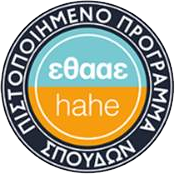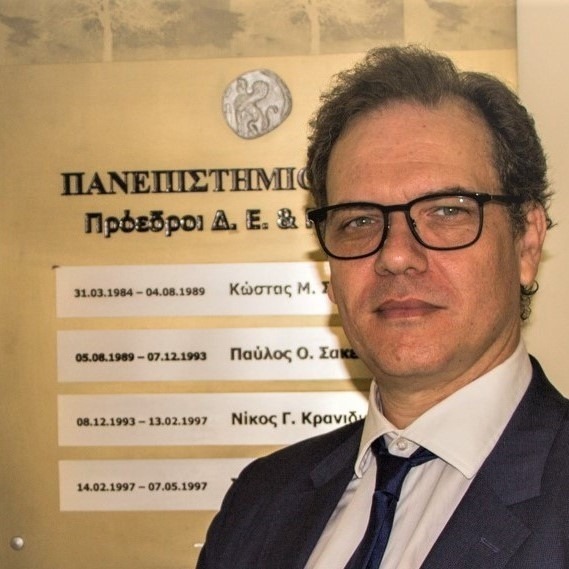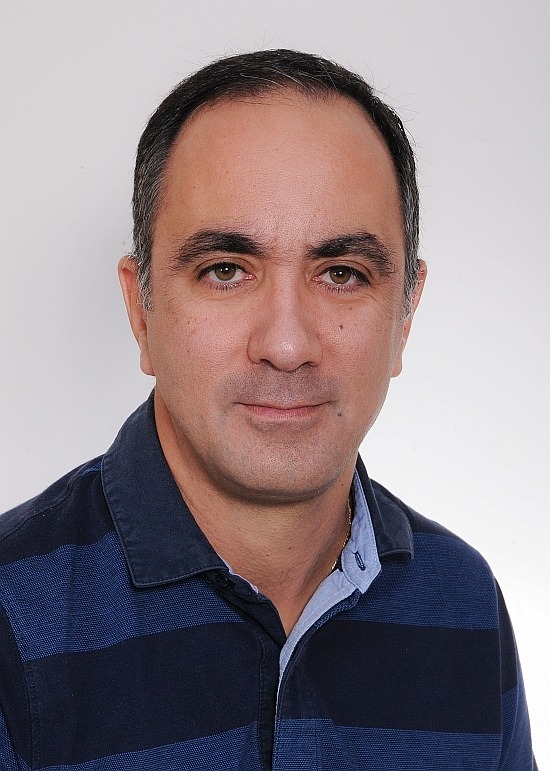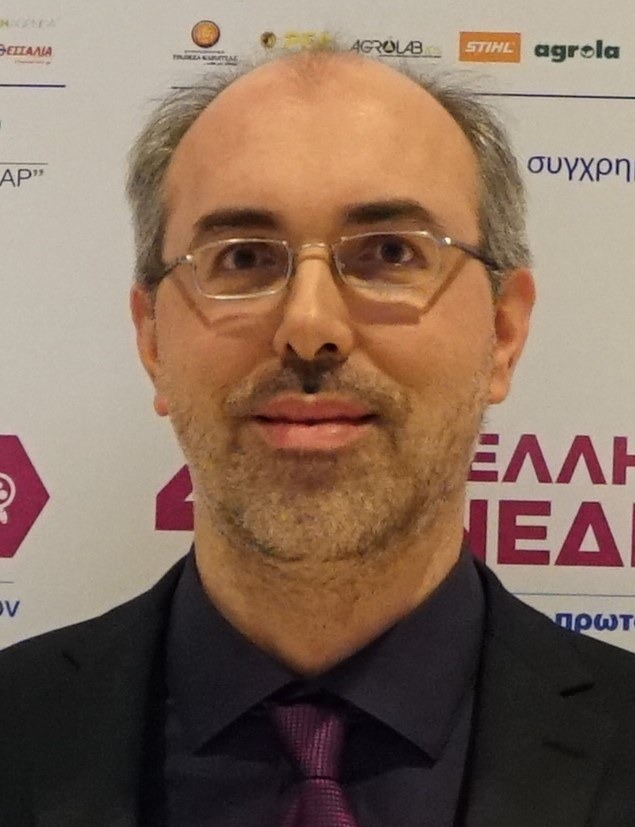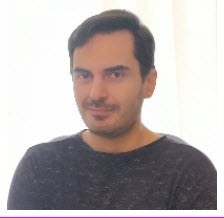
Internet of Things: Artificial Intelligence and Next Generation Networks
Master's program in Intelligent IoT Systems: IoT platforms, IoT networks and communication technologies, artificial intelligence, machine learning, big data analytics, data semantics, IoT security and privacy, human-IoT interaction, robotics, and IoT applications.
Mode of Study
Distance Learning
Start Date
October 2025
Duration
3 Semesters (up to 6 for part-time study)
ECTS
90 Credits
Application Deadline: 29 June!
Apply100%
EMPLOYMENT RATE
Digital Revolution and the Internet of Things
The main objective of the Master's Program is the systematic training in specialized topics related to the design and development of Internet of Things (IoT) systems, with an emphasis on the application of Artificial Intelligence and integration with modern communication networks.
Program Subjects Include:- Machine Learning
- Next-Generation Networks
- Pervasive Computing Systems
- Modern Networks and IoT Integration
- Big Data Analytics
- IoT Technology Application Topics
- Embedded Systems and IoT
- Advanced IoT Communication Systems
- Robotics and Computer Vision
- Artificial Intelligence in IoT
Skills Acquired:
You will gain a strong foundation in the design and development of intelligent IoT systems.
You will become familiar with modern tools and techniques for implementing and evaluating IoT applications.
You will understand the technological and societal dimensions of IoT within the broader field of Information and Communication Technologies, as well as potential future developments.
You will deepen your knowledge of the capabilities of Machine Learning and Artificial Intelligence for the development of autonomous and adaptive systems.
You will be able to design and implement IoT solutions in areas such as smart cities, healthcare, energy, and Industry 4.0.
You will acquire application development skills in dynamic environments, leveraging Artificial Intelligence and integration with modern communication networks.
You will be able to actively participate in research activities or pursue doctoral studies in related scientific fields.
The Master's Program is in accordance to the clauses of Law 4957/2022 and the Regulations of Studies for the postgraduate programmes of studies, effective after their validation from the University’s Senate Greek Government Gazette issue for the establishment of the postgraduate programme: 2965/B’/24.07.2018, as amended by Gazette issue 4552/B’/17.07.2023, 1744/B/09.04.2025
Learn More
Our partners and graduates said:
Flexible Study Options
Full-Time Study
- 3 semesters (one semester for thesis)
- Evening online lectures
- Teaching with modern digital means
- Evaluation through a combination of methods
- Gradual tuition fee payment
- Scholarship opportunities
Part-Time Study
- Up to 6 semesters (one semester for thesis)
- Fewer courses per semester
- Specifically for working professionals
- Same rights and obligations as full-time students
Application Deadline
Until June 29, 2025
Teaching Staff
Videos


Program Information
Program Information
Distance Learning
Courses are delivered through synchronous distance learning, using a dedicated platform that supports the educational process throughout all weeks of study during the first two academic semesters.
Final examinations are conducted for the courses of the first two semesters.
These examinations are carried out either through in-person methods (such as written exams), or through remote assessments (such as the preparation and presentation of an assignment, oral exams), or through another method or a combination of methods.
Full-Time / Part-Time Study Program
The full-time study program lasts three academic semesters and is conducted in a blended learning environment with innovative combined forms of education, which include synchronous online learning processes, utilizing a dedicated platform that supports the educational process throughout all weeks of study during the first two academic semesters.
During the third semester, only the Master's thesis is carried out. Attendance of courses and participation in all types of educational activities, such as assignments, exercises, etc., is mandatory.
The duration of study in the Master’s Program is defined as three academic semesters, including the time required for the thesis. The maximum allowable time for completion of the program is six academic semesters.
Part-time study is available for postgraduate students who are employed. Students in this category must prove that they work at least 20 hours per week and submit a relevant employment contract or employer’s certificate.
Part-time study is also available for non-working students who are unable to meet the requirements of full-time study due to health reasons, family obligations, military service, force majeure, etc.
Interested applicants must submit a request to the Department Assembly before the start of the Program’s courses.
The duration of part-time study may not exceed six (6) academic semesters.
Course List
1st Semester
2nd Semester
3rd Semester
Part time Enrollment Course List
1st Semester
2nd Semester
3rd Semester
4th Semester
5th Semester
6th Semester
Course Instructors
| Course Title | Semester | Instructor |
|---|---|---|
| Machine Learning | 1st | Professor Efstathios Stamatatos |
| Design, Development, and Performance Evaluation of Next-Generation Networks | 1st | Professor Charalambos Skianis |
| Pervasive Computing Systems | 1st | Professor Christos Goumopoulos |
| Modern Networks and IoT Interconnection | 1st | Associate Professor Dimitrios Skoutas |
| Big Data Analytics | 1st | Associate Professor Panagiotis Symeonidis |
| Topics in IoT Technology Applications | 2nd | Professor George Kormentzas |
| Embedded Systems and IoT | 2nd | Associate Professor Emmanouil Kaligeros |
| Advanced IoT Communication Systems | 2nd | Assistant Professor Konstantinos Maliatsos |
| Robotics and Computer Vision | 2nd | Professor Ergina Kavallieratou |
| Artificial Intelligence in IoT | 2nd | Associate Professor Theodoros Kostoulas |
| Master's Thesis Preparation | 3rd |
Cost
The total tuition fee for the program is set at €3,000.
The fees are paid as follows:
(a) €500 within 15 days of the notification of acceptance,
(b) €1,000 upon registration for the 1st semester (early October), and
(c) €1,500 at the beginning of the 2nd semester (February).
It is noted that any portion of the tuition fees already paid is non-refundable.
Scholarships
The postgraduate studies programme may offer a number of grants, conditional on academic performance, to full-time students.
The amount of funding, requirements, method of funding, as well as the rights and responsibilities of grant-holders are decided by the Department’s Assembly (par. 4, Article 35 of Law 4485/2017).
Admission Requirements
Eligible for the Program are:
- Degree or diploma holders in informatics and communications, engineering, sciences, or equivalent fields of study, from Greek universities or Technical Educational Institutions, or equivalent international institutions that are officially recognized by the Greek state.
- Graduates from Greek military higher education institutions (Article 88 of Law 3883/2010, Greek Government Gazette issue 167/24-9-2010, Α).
- Graduates from the Officers School of the Hellenic Police Academy (Article 38 of Law 4249/2014, Greek Government Gazette issue 73 Α).
- Students of Greek higher education institutions that are in their last year of studies, provided that they will have sent a certificate of completion of studies before the deadline date for application to the MSc programme.
Candidates are evaluated according to the criteria specified in Article 8 of the Regulations of Studies for the programme of postgraduate studies (available on the website).
Required Documents
Applicants are required to fill in a candidacy application form, attaching the following documents:
- A copy of their ID or passport
- A CV
- A copy of their degree/diploma or a certificate of studies completion
- Peer-reviewed publications, if there are any
- Certificates of professional or research activities, if there are any
- Two references
- A copy of the candidate’s undergraduate dissertation or its title and abstract if it has not been completed; in case the candidate was not required to write a dissertation during their undergraduate studies, they should mention so in writing
- Proof of English language competency equivalent to or higher than B2 level (according to the Common European Framework of Reference for Languages)
- Any other document that the candidate believes it might support their application
The application and all digital copies of documents must be submitted online on the “Nautilus” platform (https://nautilus.aegean.gr/). Hard copies can be submitted in person during admission.
Study Regulations
Circulars related to the Study Regulations of the program:
Interviews
Download articles for the postgraduate programme’s interviews:
Thesis Topics
Academic Calendar
Study Guide
Quality Assurance Policies
Financial Report
Financial report for the Internet of Things Master's Program.

